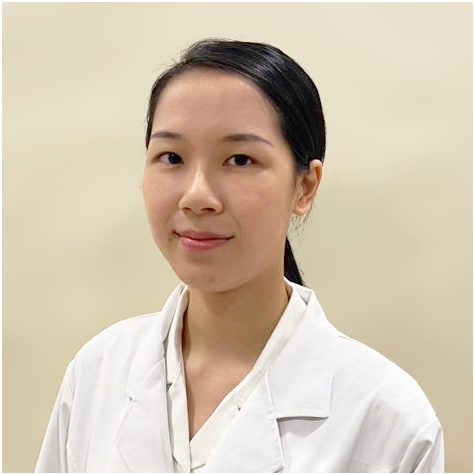
Ma Wai Kwan
Registered Chinese Medicine Practitioner
RCMP: 008271
Ma Wai Kwan
Registered CMP No. 008271
【Specialty】
Weight Loss, Pain Management, Gynecological Health
【Professional Qualifications】
Guangzhou Chinese Medicine University – Master in Chinese Medicine
Beijing Chinese Medicine University – Bachelor in Chinese Medicine
Beijing Chinese Medicine University – Bachelor in Chinese Medicine
Brief Talk on Treating Obesity with Traditional Chinese Medicine
Obesity not only affects appearance, but more importantly, it affects health. The World Health Organization has classified obesity as a "disease" and recommends using the Body Mass Index (BMI) to classify those who are underweight, healthy weight, overweight and obese.
People who are overweight or obese (excessive BMI value) are prone to imbalance in the metabolism of sugar, fat, water, salt and other substances. Comorbidities and downstream health consequences includes hypertension, coronary heart disease, diabetes, hyperlipidemia, cholelithiasis, fatty liver disease, arthritis and other diseases. We have to be vigilante to seek prevention early. TCM treatment for obesity includes regulating the organ systems to lower the risks of comorbidities.
Currently, TCM treatment against obesity mainly relies on the traditional methods of “syndrome differentiation and disease differentiation”, combined with a dynamic therapeutic approach, in regulating stomach, spleen and hormonal functions.
Common methods includes prescribed Chinese Medicine formula, acupuncture, ear acupuncture, and integrated acupuncture (acupuncture on the body + ear acupuncture combined with cupping). Treatment scheduled between 2-3 times with 10 times as one treatment course spanning between 1-3 months.
Simple obesity denotes obesity as primary clinical symptoms. The combination of acupuncture with prescribed Chinese Medicine is the most effective treatment option. Common syndrome types include excess heat in stomach and intestines, spleen-deficiency and blocked dampness, liver and qi stagnation, etc. The treatment methods also vary according to the different syndrome types. 1) Clearing excess heat for excess heat in stomach and intestines, 2) Invigorate the spleen and removing dampness for spleen deficiency and blocked dampness, 3) activating qi and dispersing stagnation for liver and qi stagnation, we do not advise to treat simple obesity with a general purging method without considering these syndrome types.
In many cases, obesity is only one of the manifestations of other diseases or as a concurrent illness. For example, polycystic ovary syndrome (PCOS) is a common gynecological disease, which is clinically characterized by hyperandrogen, persistent anovulation, and polycystic changes in the ovary, some patients with this condition can also have insulin resistance and obesity at the same time. For this situation, it is necessary to combine syndrome differentiation and disease differentiation [diagnosis] to grasp the characteristics of the disease. Obese polycystic ovary syndrome belongs to the category of "infertility" in traditional Chinese medicine. TCM disease etiology include phlegm stagnation and spleen yang deficiency and kidney ying deficiency to cause blood and qi stasis, and phlegm dampness. The treatment principle is to remove blood stasis, recuperate the kidney and invigorate the spleen.
TCM treatment focuses on regulating the human body’s hormonal balance. The core of treatment is to regulate the body’s changing hormonal level with corresponding diagnosis and differentiation, so as to device proper course of treatments using acupuncture and prescribed TCM formula for maximal therapeutic benefit.
The treatment for obesity comorbidities also require a combination of using syndrome differentiation and disease differentiation [diagnosis]. These include treatment for diabetes, in which abdominal obesity is closely related to metabolic syndrome and insulin resistance; obesity-related nephropathy, fatty liver, hypertension, blood pressure, heart disease, high cholesterol, cerebrovascular disease, gallbladder disease, osteoarthritis, sleep apnea, etc. Basically, it is based on the principle of "Symptomatic treatment in acute condition, radical treatment in acute condition", and the most urgent and critical diseases are treated first, followed by weight loss.
Ma Wai Kwan (Registered Chinese Medicine Practitioner)
